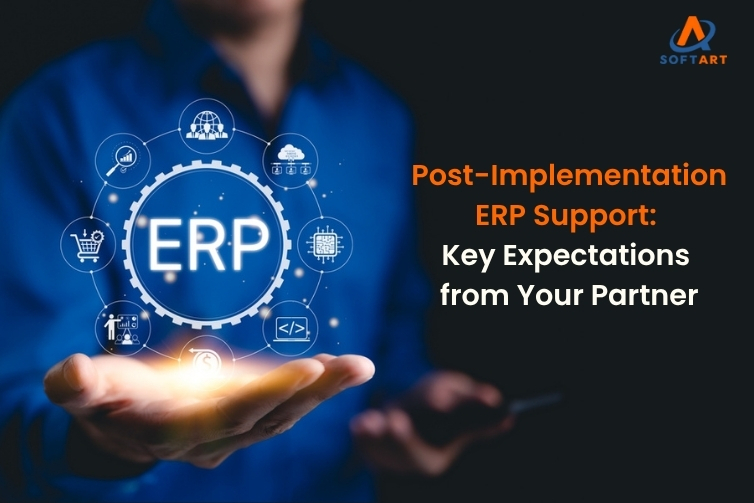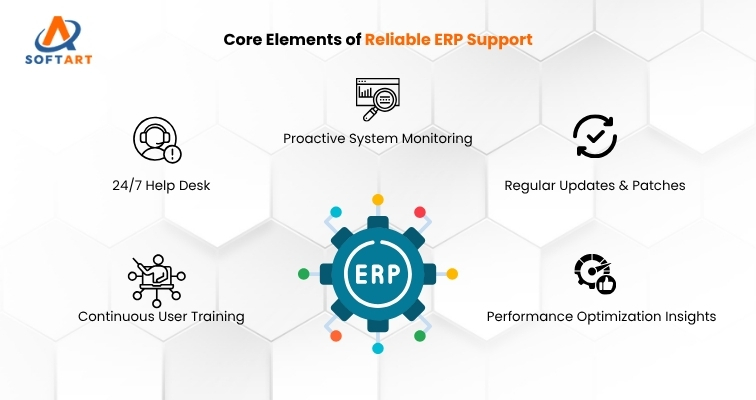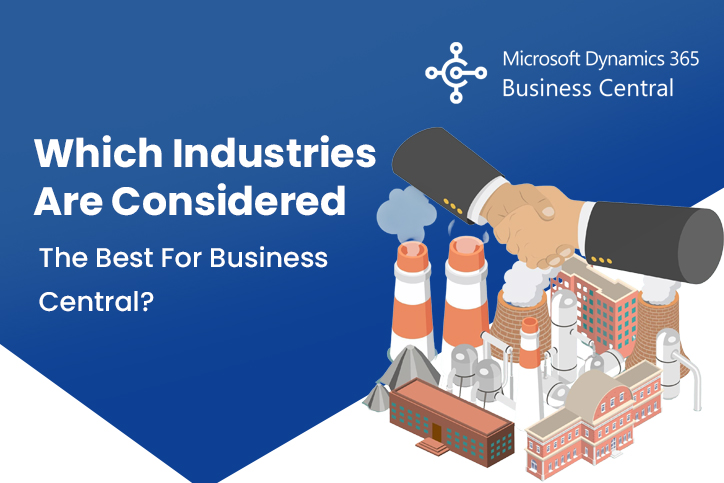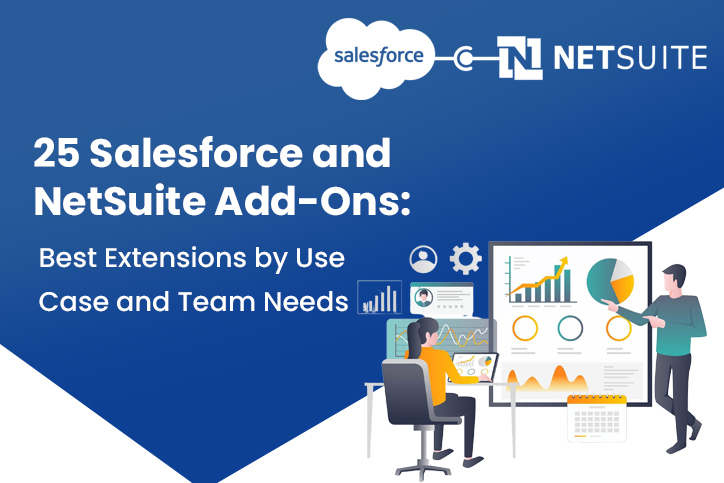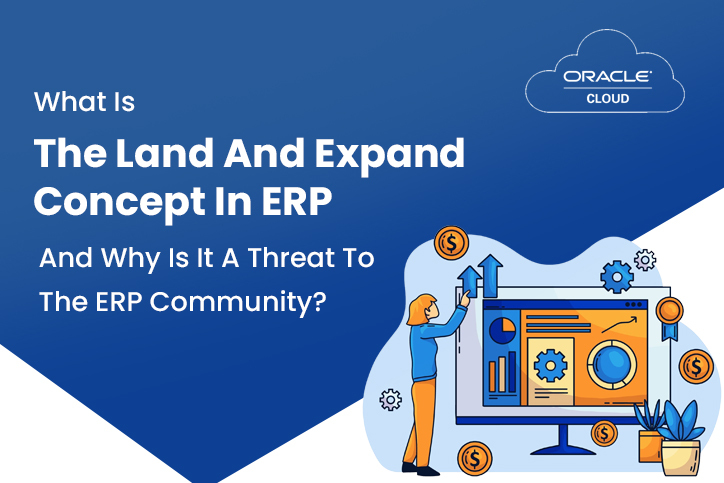Enterprise Resource Planning (ERP) systems can transform operations but the real challenge often begins after go-live. Many companies invest heavily in Oracle ERP, NetSuite or Microsoft Dynamics 365 but struggle to unlock their full value due to poor post-implementation support. According to Panorama Consulting’s ERP Report, over 58% of businesses fail to achieve expected ROI within the first two years, primarily because of inadequate guidance after deployment.
If you’re wondering how to choose the right ERP support partner or unsure about what to expect from an ERP support partner, this guide outlines everything you need to know from problem areas to measurable outcomes.
Why Post-Implementation ERP Support is Critical
The go-live date is not the finish line. It’s the starting point for optimization, troubleshooting and strategic scaling. Without structured support, businesses face challenges such as:
- Declining system performance over time
- Increased downtime or unresolved bugs
- Lack of user adoption leading to operational inefficiencies
- Difficulty managing updates, integrations and compliance requirements
Strong ERP support ensures ongoing system health, user satisfaction and a faster path to ROI.
Common Post-Go-Live Challenges Businesses Face
Identifying the pain points is a great leading point for you to figure out the qualities that you should look for in your ERP support partner.
- Slow Response to Issues: Technical issues that are not addressed or the downtime can cause a ripple effect in the supply chain, finance operations, and customer service.
- Low User Adoption: Most of the time, the staff face difficulties in using the advanced features properly, thus, lowering the overall impact of the system.
- System Performance Gaps: The use of legacy integrations, customizations, or even wrongly configured modules can go to the extent of blocking the target workflows.
- Compliance and Security Risks: Doing without patches and monitoring in a timely manner leaves the company on the edge of non-compliance with regulations and of cyber threats.
- Unplanned Costs: Partly resolved or inefficient system usage can be the root of support costs that spiral upwards.
Your ERP support provider can be better equipped to meet your needs once you define the challenge.
What to Expect from an ERP Support Partner
An effective support partner goes beyond basic troubleshooting. Here are the core services and capabilities you should prioritize:
1. Proactive System Monitoring and Maintenance
A great partner offers round-the-clock monitoring to identify issues before they escalate. This includes:
- Performance tracking of ERP modules
- Regular health checks on integrations
- Early detection of security vulnerabilities
2. Dedicated Help Desk and Rapid Response
Expect tiered support with clear SLAs (Service Level Agreements) to ensure timely issue resolution.
Key considerations:
- 24/7 help desk availability
- Escalation procedures for critical incidents
- Transparent reporting on ticket resolution times
3. Continuous User Training and Enablement
Training should not end after implementation. Your support partner must provide:
- Role-based training sessions for new hires
- Refresher workshops for existing staff
- Documentation and self-service knowledge bases
Empowered users lead to higher productivity and system adoption.
4. Update and Patch Management
ERP platforms like Oracle and NetSuite roll out regular updates. A reliable support partner handles:
- Testing patches in a sandbox environment
- Coordinating smooth rollouts with minimal downtime
- Ensuring compatibility with custom modules
5. Customization and Integration Support
Business needs evolve. Look for partners skilled in:
- Adjusting workflows as operations grow
- Integrating third-party applications (CRM, HR, supply chain tools)
- Supporting API-based or legacy integrations
6. Performance Optimization and Reporting
Your ERP should scale with your business. Quality partners provide:
- System audits to identify bottlenecks
- Optimization of modules for efficiency
- Enhanced reporting dashboards for data-driven decisions
How to Choose the Right ERP Support Partner
Selecting the right partner determines your ERP’s long-term success.
Consider these key criteria:
1. Industry Expertise
Your partner must have experience in your industry to address compliance and workflow requirements specific to your sector.
For example: Manufacturers may require advanced production planning, while financial firms focus on regulatory reporting.
2. Certified Technical Team
Ensure the provider has certified professionals for Oracle ERP implementation, NetSuite and Microsoft Dynamics 365. Certification reflects competence and access to best practices.
3. Flexible Engagement Models
Choose a partner offering:
- On-demand support for urgent issues
- Managed support for end-to-end maintenance
- Hybrid models that blend both
4. Transparent SLAs and Reporting
Demand clear metrics for response times, uptime commitments and ticket resolution rates to maintain accountability.
5. Scalability and Innovation
Your partner should be capable of supporting future growth, including system upgrades and AI-driven automation initiatives.
The Post-Implementation Support Framework: A Step-by-Step Model
Here’s a proven six-step model to ensure smooth ERP operations after go-live:
| Step | Focus Area | What It Covers |
|---|---|---|
| 1 | Assessment | Review current system setup, user adoption and pain points |
| 2 | Monitoring Setup | Implement 24/7 system health and performance monitoring |
| 3 | Optimization Plan | Identify areas for better workflows, reporting and integrations |
| 4 | Training Rollout | Conduct continuous role-based sessions and knowledge-sharing |
| 5 | Ongoing Maintenance | Regular updates, bug fixes and security patching |
| 6 | Quarterly Review | Evaluate KPIs, ROI and recommend future improvements |
Following this framework minimizes downtime and maximizes ERP efficiency.
Actionable Tips for Businesses to Maximize ERP Support
Here’s how to ensure your ERP support delivers results:
- Define Clear KPIs: Measure aspects such as mean resolution time, system availability, and user engagement levels.
- Make Reviews a Top Priority: Organize a quarterly meeting with your partner, sharing objectives and performance to be on the same page.
- Gather Feedback from Users: The experience of employees is a valuable source of improvement that is often missed by the IT team.
- Commit to Continuous Learning: Set aside the necessary funds for refresher courses to keep users informed about new features.
- Get the Most Out of Advanced Features: Just don’t limit yourself to the basic features of a product, use the product’s analytics, automation, and AI components to generate utility.
Cost, ROI and Business Impact of ERP Support
While costs vary based on system complexity and service models, ERP support typically accounts for 15-20% of the original implementation budget annually. The return on this investment can be significant:
- 30-40% reduction in unplanned downtime with proactive monitoring
- Up to 25% faster user adoption with continuous training
- 15-20% savings in operational costs by optimizing workflows and reporting
| Service Aspect | Average Annual Investment | Expected ROI |
|---|---|---|
| Monitoring & Maintenance | $25,000–$50,000 | Reduced downtime costs |
| Training & Enablement | $10,000–$20,000 | Increased workforce productivity |
| Integration & Customization | $15,000–$30,000 | Higher scalability and process efficiency |
A structured ERP support program not only protects your initial investment but also ensures the system continues delivering measurable business outcomes.
A Real-World Perspective
The “support gap” is a common issue that comes after the implementation of the ERP system in many organizations. As an example, a manufacturer of medium size located in the US experienced that errors in the stock of goods increased by 35% because the integration was not properly managed and the updates were late. After half a year of relying on a support partner, the company was able to report a 50% improvement of the order accuracy as well as a 20% reduction of IT support costs.
This instance is just a pointer to the considerable financial and operational benefits the right ERP support partner can make.
Ready to Maximize Your ERP ROI?
An ERP implementation is just the beginning of your ERP journey; it is actually at go-live where the whole transformation becomes visible. Working with an expert who has the necessary experience guarantees continuous optimization, trouble-free updates and a quicker business progression.
If you are aiming at making ERP management simple and unlocking the greatest return on investment, then SoftArt is your go-to partner. Our successful history of Oracle ERP, NetSuite and Microsoft Dynamics 365 support has been the combination of solid technical skills and the grasp of the industry which resulted in our clients’ long-term success.
Would you like to make your ERP journey easier and get the most out of your return on investment? Get in touch with SoftArt Solutions Inc. for a free consultation with us.
Frequently Asked Questions:
- What should an ERP support partner be expected to provide after implementation?
Ans: A smooth-running system throughout, prompt resolution of issues, continuous updates, and user training should be expected in which compliance, performance, and ERP adoption will be improved.
- What are the best ways for me to pick an ERP support partner that fits my business?
Ans: Evaluate the partner for depth of knowledge about your business sector, qualified and groomed technical staff, different kinds of support options, fair and open SLAs, and the track record of the partner in tandem with your business growth.
- What makes post-implementation support so vital for Oracle ERP implementation?
Ans: It ensures system health, boosts productivity, simplifies updates/customizations, and minimizes downtime through continuous optimization.
- What challenges can arise without strong ERP support?
Ans: You may face low user adoption, performance issues, delayed updates, increased downtime, and higher unexpected costs, ultimately reducing ROI.
- How can ERP support improve ROI in the long run?
Ans: It minimizes downtime, enhances adoption, and streamlines operations, boosting efficiency and cutting costs, helping maintain long-term ERP value.




